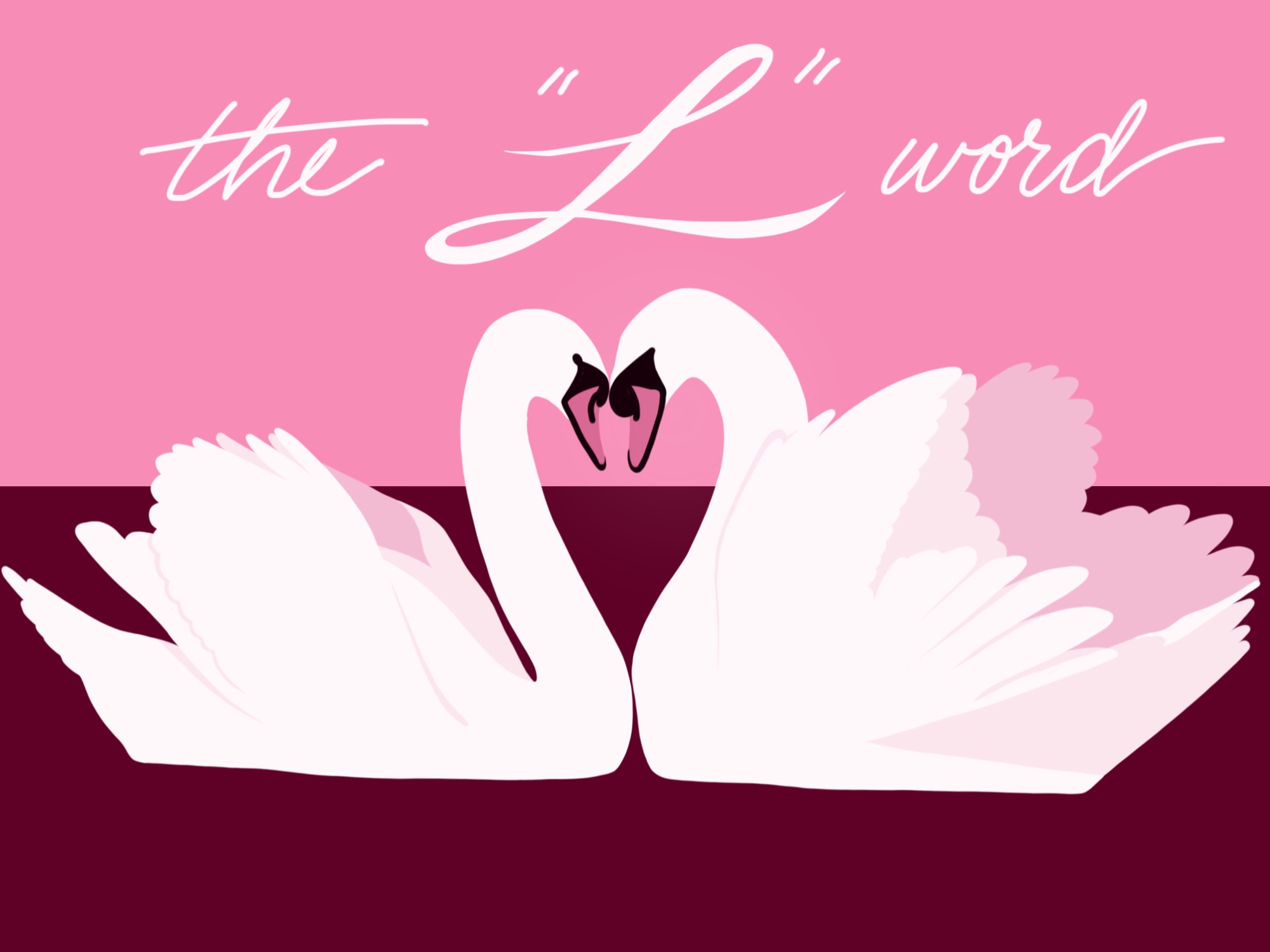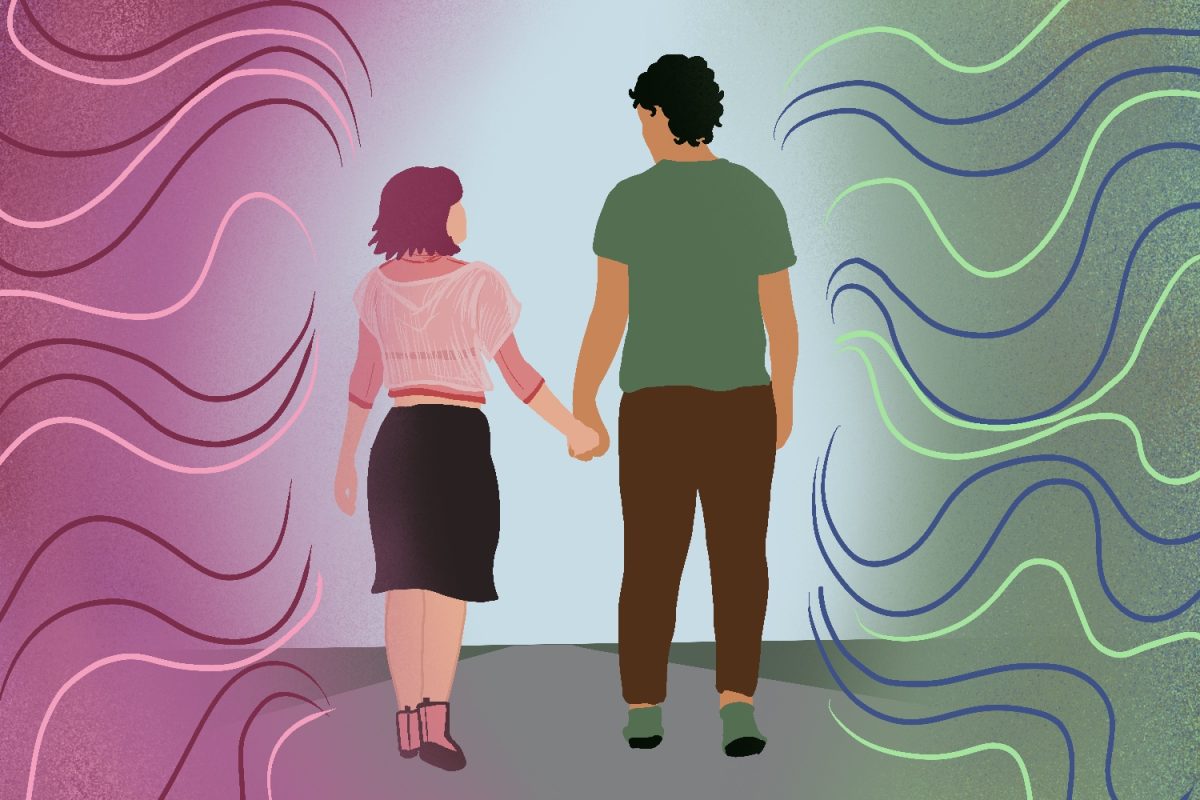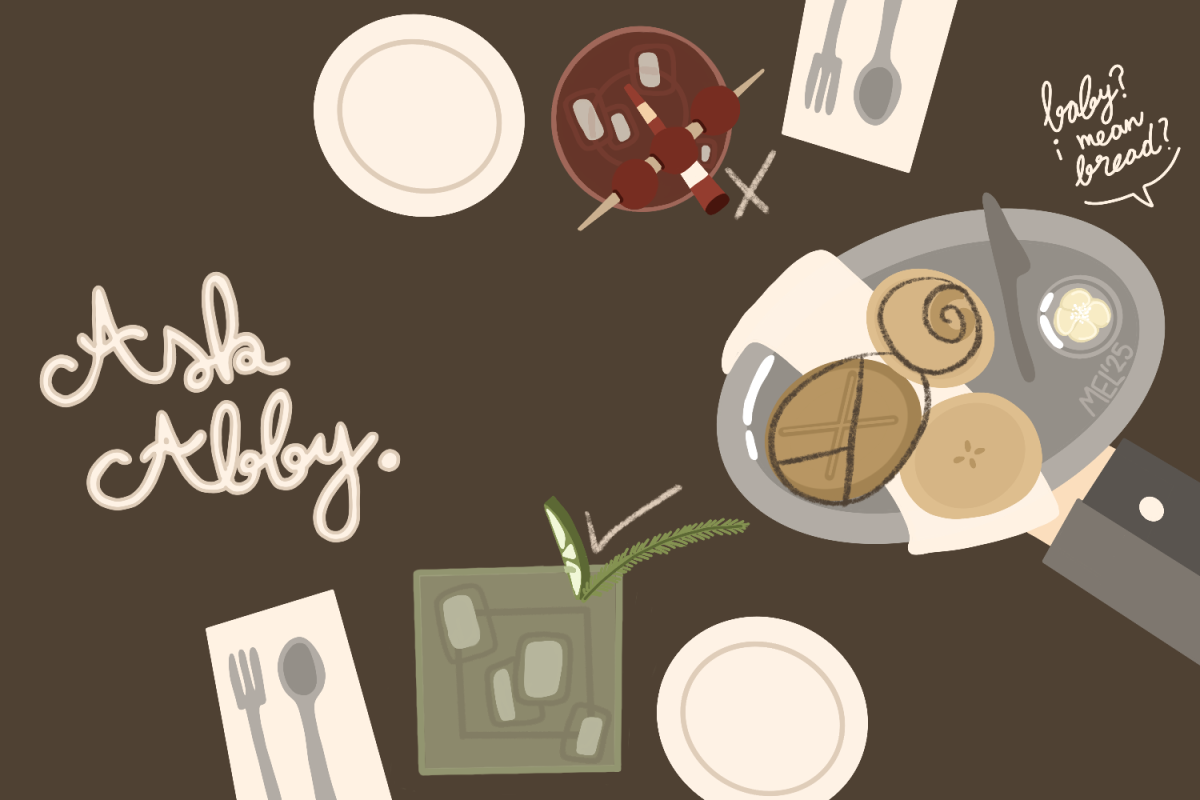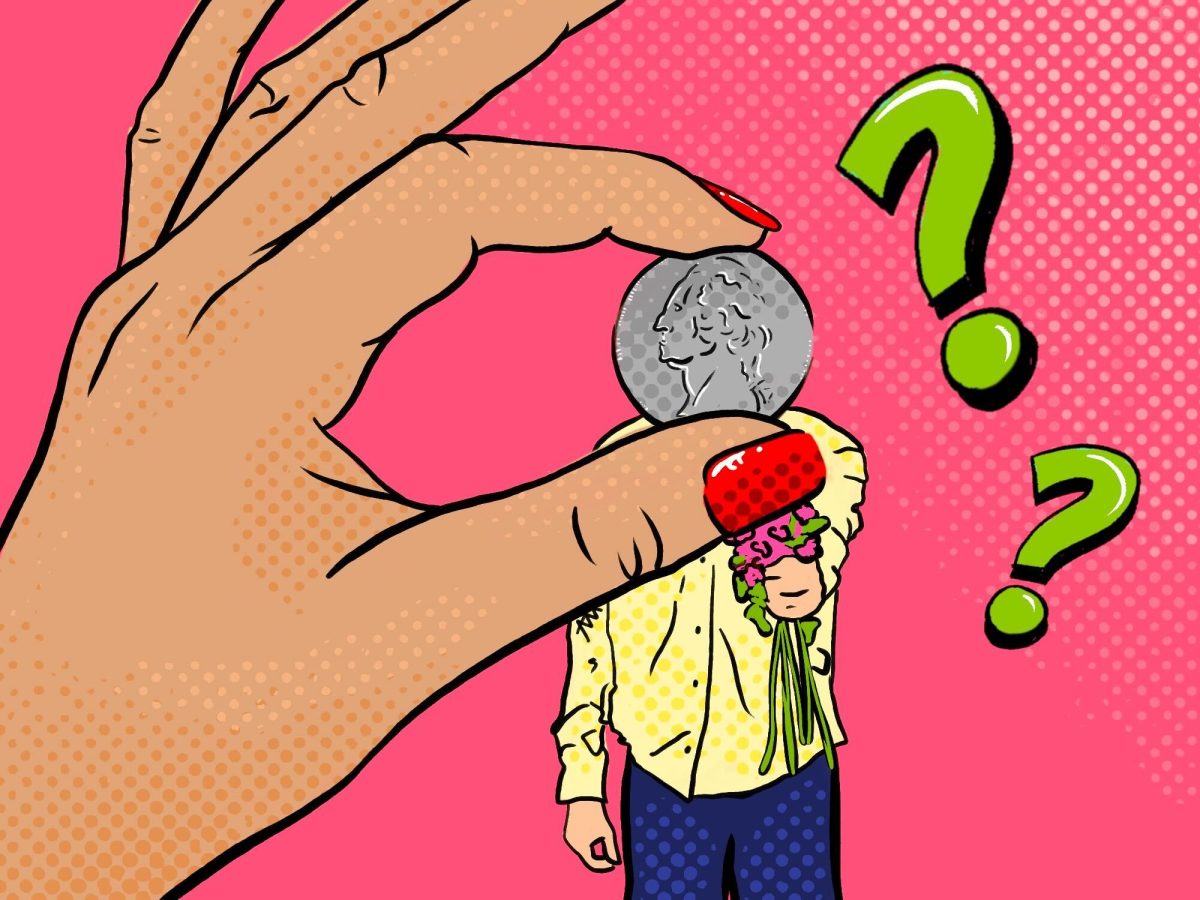Dear Abby: I’ve been seeing someone for a few months right now and I never know how to leave things off. What I mean is –– everytime we say goodbye, I want to say I love them, but I’m scared! What if they don’t say it back? What if they think I’m moving too fast? Please tell me, when is the right time to start using this word of endearment?

Frank Sinatra said it best in his song, “Somethin’ Stupid” –– sometimes you really can go and spoil it all by saying something stupid like “I love you.”
He has a point –– you can easily make things awkward if the feelings aren’t mutual or the words fail to be reciprocated. But, I’m sure there’s also some instances where the use of the term explodes people’s hearts into a million tiny pieces.
It’s really all about time and place.
The L-word, or “love,” is used in our everyday verbiage with its profound versatility. As far as sentences go, saying “I love you” is quite simple, which also makes it slightly overused.
We “love” a lot of things, but this isn’t always the same kind of “love” that we would attach to a human, romantic relationship — and maybe that’s the issue.
Does saying that we “love” things too much desensitize us to the word’s actual hard-hitting meaning? Should we be using this term with just anyone? Or are we imposing that love is some sort of commodity to be had in small doses?
As I attach the phrase with every kiss I blow, and each goodbye I wave, I can’t help but wonder — when should you tell that special someone that you love them?
Knowing what it means
The unique thing about love is that it has the ability to transcend all boundaries and barriers –– so know where they lie.
Yes I love coffee, painting my nails red and buying new shoes –– but that’s just superficial. I say I “love” these things because they bring me a profound sense of happiness. I’m using the term generally, because surely a Steve Madden ballet flat could never understand how I feel, despite my spiritual connection to some of my shoes.
On the other hand, I call my mom each night to tell her I love her, I text my sister to tell her the same thing and tell my best friends that I love them and to get home safe when we’re departing.
The connection I feel with each person here is different, but the sentiment is all the same. With that one simple phrase, I can communicate to them that they take up space in my mind, body and soul.
Saying you love someone in a romantic context, however, is slightly different.
Telling a partner — someone you effectively plucked off the street and decided to be vulnerable towards — that you love them, is kind of a big deal.
Simply put, they know you in a different light. With dating, we can control how much our partners get to know about us, but I feel that in lending them that phrase, we give them a first class ticket to a seat in our heart — a very high honor.
Don’t drop the love bomb too early
Okay, so love isn’t exactly a science that can be quantified. It’s not a “one-size fits all” phenomenon, so I unfortunately have to lead you off with an unsatisfying answer: There is no specific amount of time that you need to wait before crossing this threshold.
You can’t add up all of your dates, multiply them by how good the makeouts are and then divide them by each time you’ve held hands.
But, just because love isn’t computable doesn’t mean you should drop the phrase on your second date.
In some ways, I think saying it too early ruins the value of the term. When you throw it around in conversation, you take a very serious word and make it casual. Yes, I love coffee and I also love my sister, but I don’t feel as passionately about the both of them, so I’m not going to treat them like they’re the same.
My perspective is this: You shouldn’t say that you love someone in a romantic context until you love them beyond the surface level. You’ll find the ability to love them beyond their beauty, their humor and the way they make you feel. These are considerable factors, but not the very crux of what is at hand here.
As they say, to be loved is to be seen. So, I invite you to try and see them first — not in a physical context, but in terms of their heart.
Love versus infatuation
You know my motto: Be direct with how you feel! But here’s the one time I would advise against it. In the same way people confuse chemistry with familiarity, they also confuse love with infatuation.
But let’s get one thing straight — infatuation is a very surface level kid of adoration. We are drawn to people based on a mixture of external factors and more personal ones. Infatuation is a very fantasy-based connection because we only know what we can see at the tip of the iceberg.
A class crush is a perfect example of this. The guy with the really cute hair who sits across from you is not someone you love, but rather someone who you are infatuated with.
Love on the overhand is very much based in reality and is felt based on how much we know about the person. You know, more than just their name, major and hometown.
We know the sound of the voice, the shape of their face, the sound of their laugh. We know their go-to bagel order, and we know what their favorite flavor of Starburst is. It sounds silly, but it’s true!
We also get to know their fears, their insecurities and what makes them smile. We get to know the things that separate them from everyone else.
To be loved, is to be known — so in that way you kind of have to know the person to feel that.
Here’s what I think: prove it!
Poets, philosophers and novelists have all tried to capture the right words to describe love, but the meaning is always evolving because it means something different to everyone.
But, one thing I will say about the L-word is that using it is not just a matter of being ready, but also being prepared to make the commitment.
So if we’re talking about relationships, I say put your money where your mouth is and prove it! Practice selflessness, be kind and above all show them that they have a place in the center of your universe.























































































































